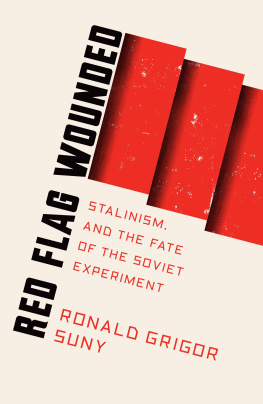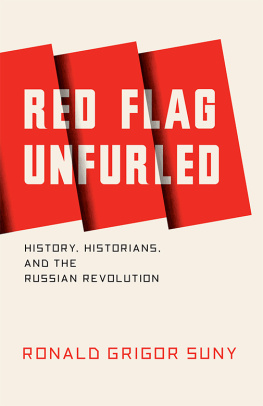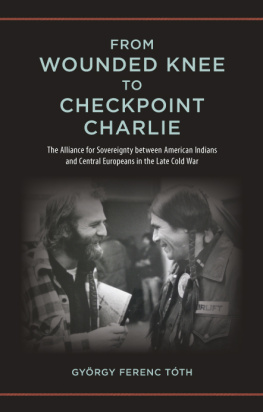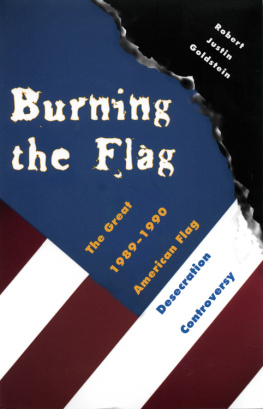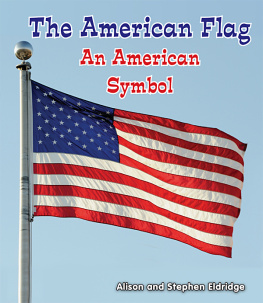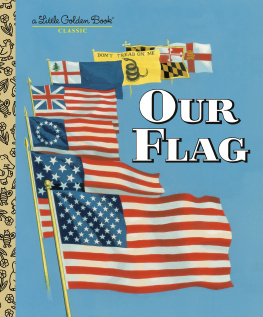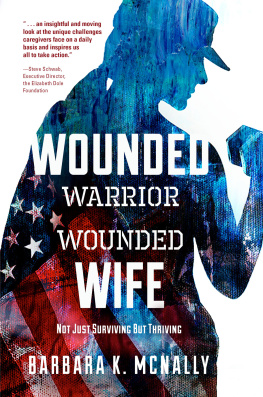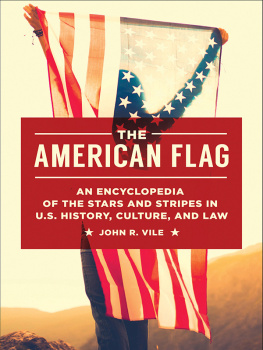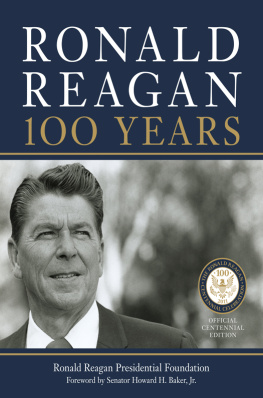Ronald Suny - Red Flag Wounded
Here you can read online Ronald Suny - Red Flag Wounded full text of the book (entire story) in english for free. Download pdf and epub, get meaning, cover and reviews about this ebook. publisher: Verso Books, genre: Politics. Description of the work, (preface) as well as reviews are available. Best literature library LitArk.com created for fans of good reading and offers a wide selection of genres:
Romance novel
Science fiction
Adventure
Detective
Science
History
Home and family
Prose
Art
Politics
Computer
Non-fiction
Religion
Business
Children
Humor
Choose a favorite category and find really read worthwhile books. Enjoy immersion in the world of imagination, feel the emotions of the characters or learn something new for yourself, make an fascinating discovery.
- Book:Red Flag Wounded
- Author:
- Publisher:Verso Books
- Genre:
- Rating:3 / 5
- Favourites:Add to favourites
- Your mark:
- 60
- 1
- 2
- 3
- 4
- 5
Red Flag Wounded: summary, description and annotation
We offer to read an annotation, description, summary or preface (depends on what the author of the book "Red Flag Wounded" wrote himself). If you haven't found the necessary information about the book — write in the comments, we will try to find it.
Red Flag Wounded — read online for free the complete book (whole text) full work
Below is the text of the book, divided by pages. System saving the place of the last page read, allows you to conveniently read the book "Red Flag Wounded" online for free, without having to search again every time where you left off. Put a bookmark, and you can go to the page where you finished reading at any time.
Font size:
Interval:
Bookmark:

Red Flag Wounded
Ronald Grigor Suny is the William H. Sewell Jr. distinguished professor of history at the University of Michigan and emeritus professor of political science and history at the University of Chicago. He is the author of The Soviet Experiment; Red Flag Unfurled; and They Can Live in the Desert but Nowhere Else: A History of the Armenian Genocide.
Red Flag Wounded
Stalinism and the Fate of
the Soviet Experiment
Ronald G. Suny

For Val Kivelson,
colleague, critic, comrade
First published by Verso 2020
Ronald G. Suny 2020
All rights reserved
The moral rights of the author have been asserted
1 3 5 7 9 10 8 6 4 2
Verso
UK: 6 Meard Street, London W1F 0EG
US: 20 Jay Street, Suite 1010, Brooklyn, NY 11201
versobooks.com
Verso is the imprint of New Left Books
ISBN-13: 978-1-78873-074-7
ISBN-13: 978-1-78873-073-0 (LIBRARY)
ISBN-13: 978-1-78873-076-1 (US EBK)
ISBN-13: 978-1-78873-075-4 (UK EBK)
British Library Cataloguing in Publication Data
A catalogue record for this book is available from the British Library
Library of Congress Cataloging-in-Publication Data
A catalog record for this book is available from the Library of Congress
Library of Congress Control Number: 2020937946
Typeset in Minion Pro by MJ & N Gavan, Truro, Cornwall
Printed in the UK by CPI Group (UK) Ltd, Croydon, CR0 4YY
Contents
The year 1917 was a turning point at which the world certainly turned. The revolutions in Russia both destroyed and made worlds, upended one understanding of historical motion and set out another, shattered the expectations of many and inspired new longings, ambitions, and opportunities of countless others. Unlike political revolutions in a single country that replaced one government with another, or nationalist revolutions that appealed to a single people and its diaspora, the Russian Revolutions, like the American and French Revolutions of the eighteenth century, resonated internationally, boldly proclaiming a new historical era and new political possibilities. The year 1917 was marked by a euphoria of popular power and democracy, a dream of utopia that soon would devolve into civil war and terror, eventuating in the nightmare of Stalinism.
Lost in much of the popular imagination of 1917 is its radical commitment to democracy of a new type, something beyond the formalism of bourgeois democracy. Beyond universal suffrage, parliaments, and civil rights, the maximalist revolutionaries of 1917 envisioned the guarantee of social rights that would make the democratic exercise of power by ordinary people possible. But the imperatives of holding onto power in a civil war undermined the elemental democracy that emerged after the fall of tsarism. Particularly incompatible with democracy was the use of terror, for a terrorized people is unable to deliberate freely.
At the same time, the revolutionaries were deeply committed to anti-imperialism and national self-determination, some (like Vladimir Lenin) more fervently than others. Even before the Bolsheviks took power in October, the socialist leaders of the post-February Petrograd Soviet held a vision that rejected the norms of the imperial powers. Both moderate and more radical socialists were determined to end the war without reparations, annexations, and rewards to the victors. The Petrograd Soviets idea of a democratic peace was in line with (but more radical than) that of Woodrow Wilson and from the first weeks strained the Soviets uneasy relationship with the Provisional Government and its more conventional war aims: war to a victorious conclusion. Once the Bolsheviks took charge in October, they sought to expose the intimate connection of the war with the foundations of capitalism and bourgeois democracy and to turn the world war between nations into a civil war between classes. Their challenge to the established order and the prevalent assignment of property, privilege, and power, and their hostility to bourgeois society, capitalism, parliamentary democracy, and colonialism presented an immediate threat quickly grasped by European and US elites. Thus, from day one of Soviet power, Lenin and his comrades presented the rest of the world with an international security dilemma. Their rhetoric and practice propelled the Western powers to use whatever means they had at hand to destroy the Communist menace. Both an international civil war and the future Cold War were already inscribed in the western, Ottoman, and Japanese interventions in the Russian civil war.
Soviet power and the inspiration generated by the revolution went hand in hand with the international opposition to Bolshevism and revolution more generally. The anti-imperialism of Moscow was met by anti-imperialism from US president Woodrow Wilson but more forcefully by a renewed commitment to empire by the major European colonial powers. In the interwar period, European imperialists were not about to give up their overseas colonies, and anti-colonial nationalist movements were inspired by (if not directly linked to) the Comintern. In the two decades before Hitler and Stalins war against Poland initiated the cataclysm of World War II, the major conflicts in the world took place in colonial and semi-colonial countries. Civil war in Russia was reflected in an international civil war between the forces of radical change and the forces of order.
One of the great paradoxes of the Soviet experience is that as anti-imperialist as the Soviet Union was rhetorically and in its support of anti-colonial movements, its internal structurea pseudofederal structure that left the bulk of decision-making and a monopoly of sovereignty in Moscowand its legitimizing discourseits Marxist mission civilisatrice, that a vanguard party would lead a worker-peasant country to socialist civilizationwere imperial. The USSR was a self-denying empire, never willing to consider itself imperial, indeed thinking of itself as the principal foe of imperialism on the globe; the Comintern and Communist parties around the world were in fact leading forces in the anti-colonial movements in the colonized world.
A related irony or paradox of Communist imperialism was that, like few other empires, the Soviet Empire was intentionally engaged in two forms of nation-building within its own territory: nation-building on the ethno-territorial level of republics and other institutional formations (such as autonomous regions) and on the all-Soviet level where efforts were made to create a Soviet People (sovetskii narod), an imagined and affective community of all Soviet citizens. The Soviet federation was in reality a pseudofederalism with little delegation of real power to the constituent units; it can be theorized as a particular form of empire. Like other imperial formations, the Soviet Empire was marked by institutionalized differences and inequalities as well as authoritarian rule in the form of dictatorship or autocracy. While nation-states with their notions of representation of the nation and sovereignty of the people have a potential affinity with liberalism and democracy, the history of empires, from antiquity to the present, is replete with the usurpation of sovereignty by the metropole, a small elite, or one person.
A key question, then, arises for students of the Russian Revolution and the Soviet experience: why did the radically democratic, anti-imperial, and anti-nationalist revolution of 1917 so quickly devolve into an authoritarian imperial state, formally federal but hypercentralized, and committed to the formation of nations within its borders? The answer offered in this book is that the process of revolutionary empire-breaking and postrevolutionary empire-making was connected primarily to the political and strategic imperatives that the Bolsheviks encountered that, combined with their own vision of their preferred and anticipated future, led them rapidly away from participatory, bottom-up forms of Soviet power to a political system monopolized by a single party with sovereign power centered at the top ranks of the Communist Party in Moscow. Another contributing factor was the fatality of different languages and The Bolshevik understanding of who their friends and enemies were and their conviction that history was moving in a predictable and favorable direction for themtheir sociology as well as their eschatologyled them to make decisions that steered them away from popular participation to direction from above. A combination of pragmatic adjustment to an existential crisis and political and ideological preferences was key to the slide toward empire and authoritarianism.
Font size:
Interval:
Bookmark:
Similar books «Red Flag Wounded»
Look at similar books to Red Flag Wounded. We have selected literature similar in name and meaning in the hope of providing readers with more options to find new, interesting, not yet read works.
Discussion, reviews of the book Red Flag Wounded and just readers' own opinions. Leave your comments, write what you think about the work, its meaning or the main characters. Specify what exactly you liked and what you didn't like, and why you think so.

